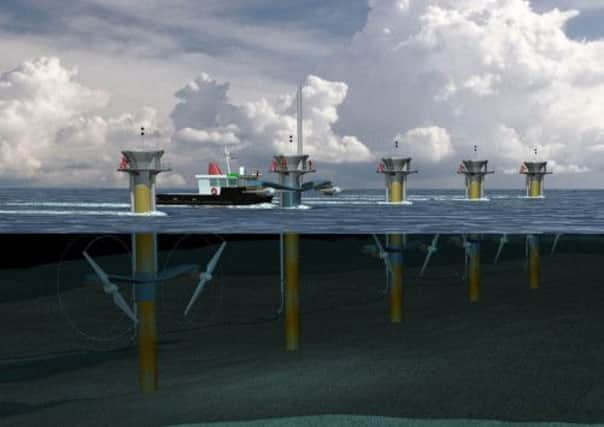Comment: Tide needs to turn for wave power industry


To date, the sector has been something of a cottage industry. Pioneers have been pushing forward for some years but, without the support from Scotland’s biggest energy firms and political leaders, it has – until now – remained a commercially unproven technology.
Scotland enjoys about 25 per cent of Europe’s tidal stream resource. The potential is there but accessing the energy in an economically viable and safe manner is today’s challenge.
Advertisement
Hide AdAdvertisement
Hide AdAs a nation, Scotland is already exporting wind energy. Yet, only 30 years ago, the concept of capturing low cost, large-scale energy in such volumes was a distant vision.
The country’s wave and tidal energy sector now finds itself in a similar place. At last, large sums of money are beginning to find their way into the sector. The Scottish Government is to be congratulated for its multi-million-pound injection of funds. This sign of political commitment has been a major encouragement for the energy firms and universities who are following suit.
Money and knowledge are now flowing into Scotland’s untapped marine potential. The industry is bursting with bright people and bright ideas and the next decade will be crucial to its future. If projects and concepts fail to show real signs of viability at scale by 2020, there is a risk that political and industrial leaders will start to question their investments.
As energy firms and industry leaders from around the world gather in Aberdeen for the All Energy Exhibition and Conference, this is a real opportunity for Scotland to show the world that it is taking major steps towards a potential renewables breakthrough.
The money and expertise are in place. What is now needed is for the momentum and political will to continue to push the sector forward as quickly as possible. If Scotland is to become a global wave and tidal energy leader, it needs to start delivery now before the time and investment disappear.
• Charles Yates is associate director at Grant Thornton.